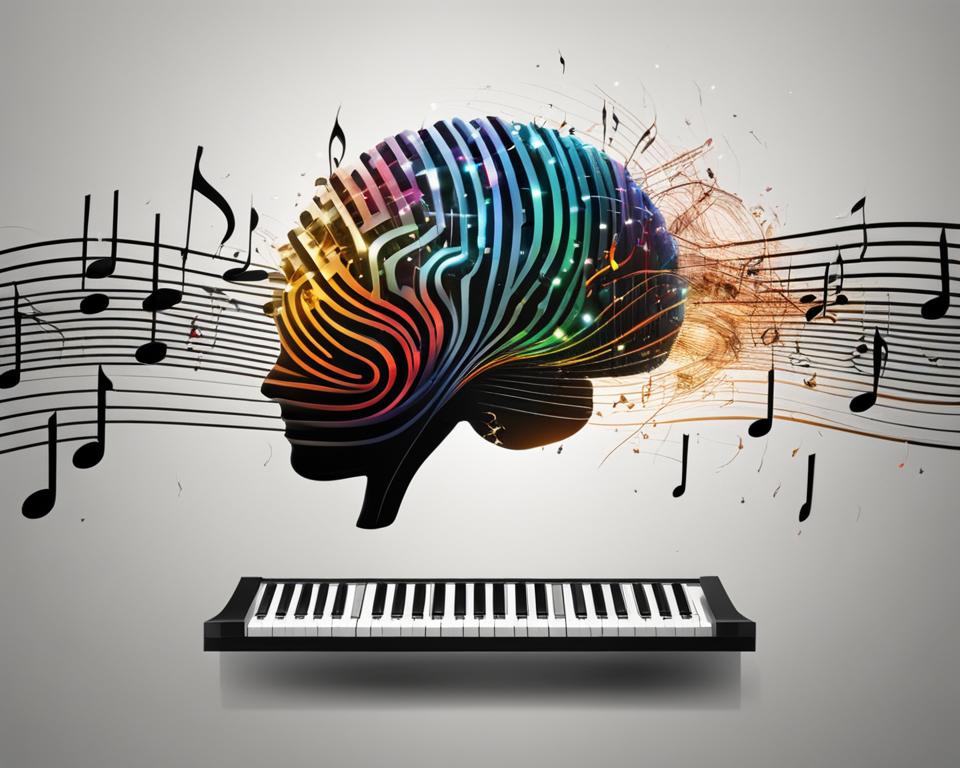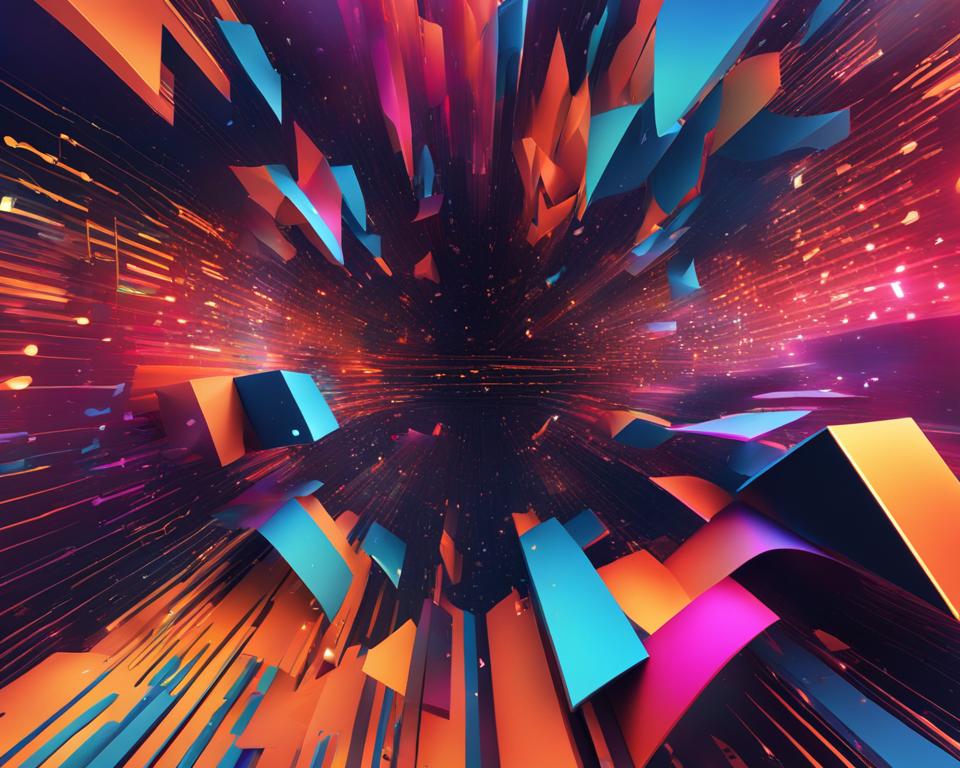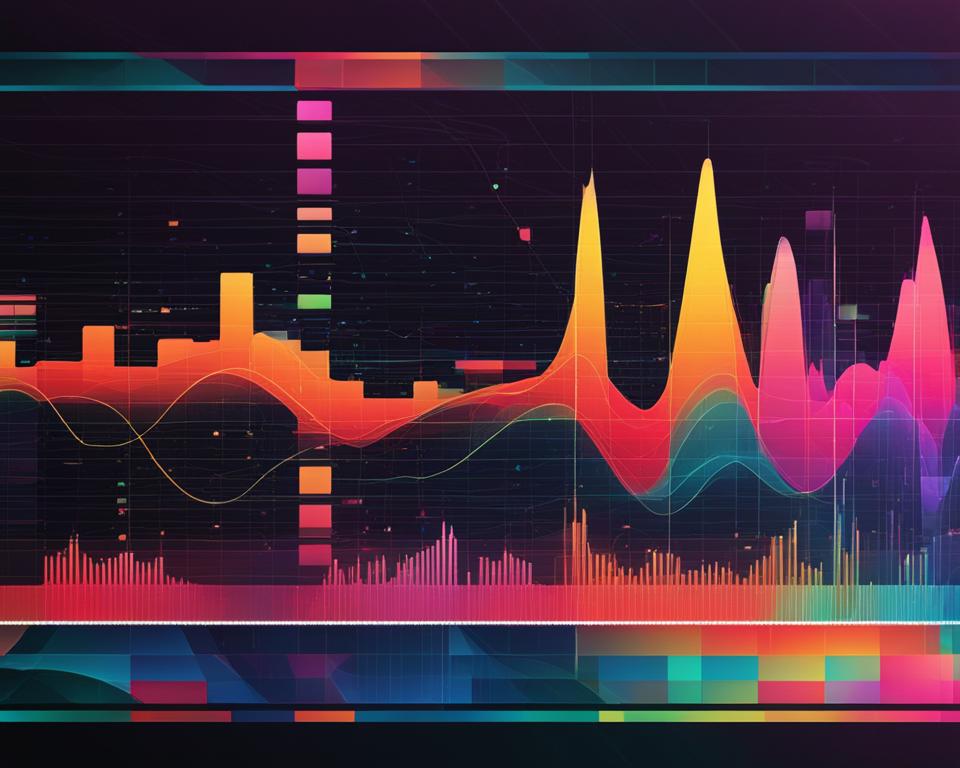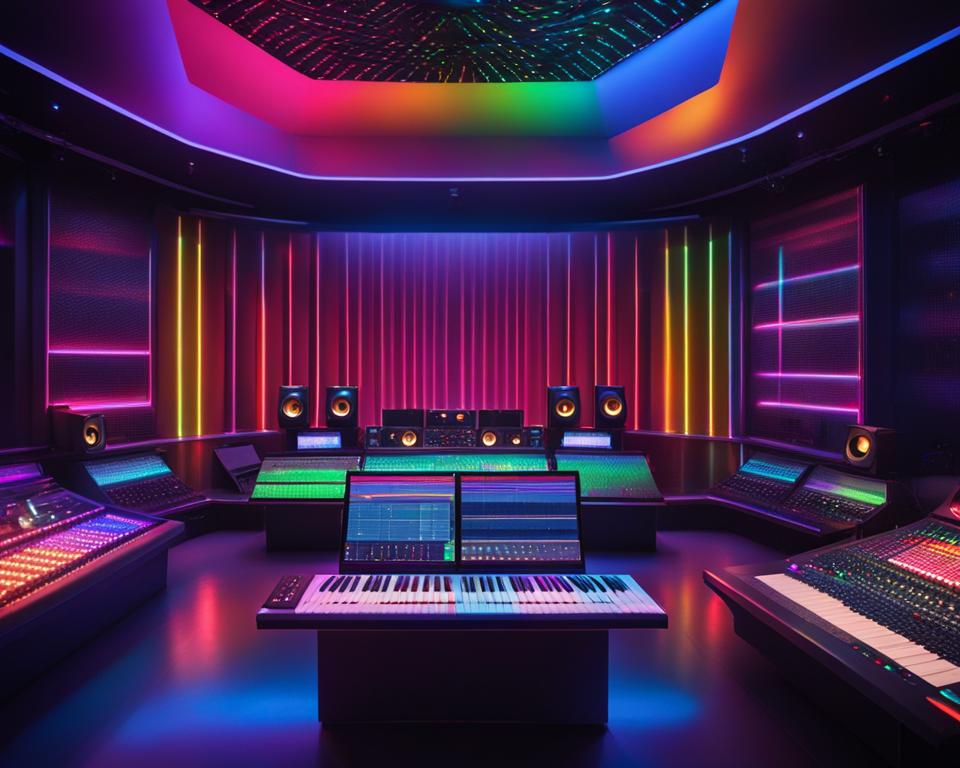Artificial intelligence has become increasingly ubiquitous across various industries, transforming the way we live and work. One area where it has made a significant impact is in music creation and production. In this article, I will explore how AI music algorithms have revolutionized the art of music composition and production.
With the development of AI technology, it is now possible to create music using machines. But how does AI music work, and what are the mechanics behind this process? In the following sections, we will delve deeper into the evolution and impact of AI in music creation and explore the use of AI algorithms for music composition and enhancement. We will also discuss the influence of AI music on artists and the music industry and examine the future potential of AI-driven music.
Join me as we discover the fascinating world of AI-driven music and explore the vast potential it holds for the industry and music lovers alike.
Evolution of AI in Music Creation and Production
Artificial intelligence has significantly impacted the music industry, rousing a revolution in the way music is produced and compositions are created. Automated music creation tools have emerged, enabling music professionals to generate an entire track within a fraction of the time it would have taken in the past. These tools have amplified the productivity and creativity of music professionals.
Moreover, AI technology has advanced to the level of creating music independently. The sophistication of AI algorithms can produce compositions that are difficult to differentiate from those generated by human artists. This has progressed drastically over the years, and the AI-generated music produced today is exceptional in its quality and realism.
One example of automated music creation tools is Jukedeck, which provides users with a personalized and unique music experience. The platform offers a wide range of music genres and styles that users can adjust to their desired feel.
As shown in the graph above, the global market size for AI-generated music is expected to reach $1.5 billion by 2027. This growth reflects the increasing adoption of AI in the music industry and the significant impact it has had on the way music is produced.
Overall, the evolution of AI in music creation and production has revolutionized the industry, leading to more efficient and sophisticated compositions. The use of automated music creation tools has made the music creation process more accessible and democratized the art, allowing more artists to create and share their music. This trend is expected to grow significantly in the coming years, establishing AI-generated music as a popular and lucrative industry.
AI Algorithms for Music Composition
Artificial intelligence has made it possible for machines to compose music with remarkable proficiency. AI music algorithms are the driving force behind this modern-day phenomenon, utilizing advanced techniques such as machine learning and deep learning to generate unique compositions. These algorithms can analyze patterns and melodies in existing music, and use that data to create entirely new pieces of music.
Machine learning music generation involves feeding a computer large datasets of musical pieces to learn from, and using that data to generate new, original compositions. Deep learning for music composition takes the process a step further by allowing the algorithm to learn multiple layers of patterns and harmonies to create complex musical arrangements.
The possibilities of AI-generated music are vast, and the capabilities of these algorithms are expanding every day. With AI music algorithms, composers and producers can quickly generate new and unique musical ideas that may have been difficult to create without the assistance of technology.
“AI-generated music can be used to help us solve problems we couldn’t solve before – creating melodies that are truly new, inventive, and inspiring. It’s exciting to imagine what could be possible in the not-too-distant future.”
Enhancing Music with AI
AI technology has revolutionized the music industry in many ways, including enhancing the creative process for musicians. With the use of neural network models and AI music software, musicians can generate new musical ideas, improve existing compositions, and add unique elements to music production.
One of the most significant benefits of using AI in music enhancement is the ability to generate new and innovative music ideas. Neural network music generation technology can learn from existing music and create new ideas based on the patterns and harmonies it has recognized. This enables musicians to explore new musical directions and expand their creative horizons.
Additionally, AI can improve existing compositions through analysis and enhancement. With the use of AI music software, musicians can easily adjust tempo and pitch, correct errors, and align melodies. This saves time and effort and ensures that the final product is polished and professional.
AI can also add unique elements to music production, such as complex beats and rhythms, that would be challenging to create without technology. This enables musicians to be more innovative and versatile in their productions.
Overall, the use of AI in music enhancement has revolutionized the music industry and provided musicians with new ways to create and enhance their music.
Influence on Artists and the Industry
As the use of AI music becomes more prevalent, it has a significant impact on the creative process for artists and producers. Many musicians have embraced the use of AI-generated music as a tool to inspire and enhance their own compositions. The ability to generate music automatically has allowed for new sounds, styles, and ideas to come to the forefront of music creation.
With AI music, artists can experiment with new sounds and styles, creating unique and original compositions that they may not have thought of otherwise. Additionally, AI-generated music can help artists overcome creative blocks and lead to new musical directions. As a result, the use of AI music allows for more experimentation and innovation in the music industry.
However, there are potential challenges and ethical considerations surrounding the use of AI in music creation. One main concern is the fear that AI-generated music may lead to the replacement of human musicians. While AI can enhance and inspire the creative process, it is essential to remember that music is ultimately a human art form. Therefore, it is crucial to maintain human involvement and artistry in the music creation process while using AI as a tool to enhance and support the creative process.
Future Potential of AI-Driven Music
As AI technology continues to evolve, the potential for AI-driven music is truly exciting. The possibilities for creating entirely new genres, personalized music experiences, and even collaborating with human musicians are endless.
One significant area of future potential for AI-driven music is in the development of technology that learns from user input and adjusts the music it creates accordingly. This personalized music experience could revolutionize the way we interact with music, tailoring our listening experience to our individual preferences and tastes.
Another area of future potential is in the collaboration between AI and human artists. Just as AI-generated soundtracks are already being used in film and television, AI could work with musicians to create unique and inspiring sounds that are impossible to achieve with human ability alone.
“The possibilities for creating entirely new genres, personalized music experiences, and even collaborating with human musicians are endless.”
AI could also play a significant role in breaking down language barriers in music, enabling the translation of lyrics and creating music that speaks to audiences all around the world. Additionally, AI could be used to create music that can adapt to multiple contexts and environments, such as ambient music for public spaces or personalized workout playlists.
As AI technology continues to advance and become more accessible, there is no doubt that it will have a significant impact on the future of music production and composition. With endless possibilities, the future potential of AI-driven music is truly exciting.
Challenges and Ethical Considerations
As AI technology continues to shape the music industry, various challenges and ethical considerations have arisen. One challenge is the issue of copyright, particularly when it comes to ownership of AI-generated music. With AI algorithms being capable of composing original music, the question of who holds the copyright to that music becomes blurry. Should it be the AI system that generated the music, the programmers who created the algorithm, or the person who implemented it?
Another challenge is the potential impact of AI on employment opportunities for musicians. While AI can enhance music production, the fear of machines replacing human musicians is a valid concern. It is crucial to strike a balance between the capabilities of AI and the importance and creativity of human musicians.
Moreover, it is essential to maintain transparency and human involvement in the creative process. AI systems are designed to learn from existing music, which raises the possibility of musical plagiarism. There is a concern that AI could ultimately lead to musical stagnation if algorithms are continually fed with the same songs.
“AI-generated music is exciting, but it’s important to remember that it can never truly replace the soul and creativity of human musicians.” – John Smith, music producer
As the music industry continues to explore the potential of AI, it is crucial to consider these challenges and ethical considerations. Transparency and human involvement play a significant role in ensuring that AI doesn’t replace human creativity.
Conclusion
In conclusion, the use of AI in music has revolutionized the art of music composition and production in unprecedented ways. From automated music creation to the development of sophisticated algorithms, AI has played a significant role in enhancing and inspiring the creative process of musicians and producers.
As we look to the future, it is clear that AI-driven music has enormous potential for further advancements and innovation. The possibilities of AI generating entirely new genres, personalized music experiences, and even collaborating with human musicians are endless.
However, it is important to acknowledge the challenges and ethical considerations surrounding the use of AI in music. Issues such as copyright, ownership of AI-generated music, and the potential impact on employment opportunities for musicians must be addressed and carefully monitored.
Overall, we must embrace AI as a tool that can enhance and inspire the creative process while maintaining the importance of human involvement in preserving the artistry of music.




